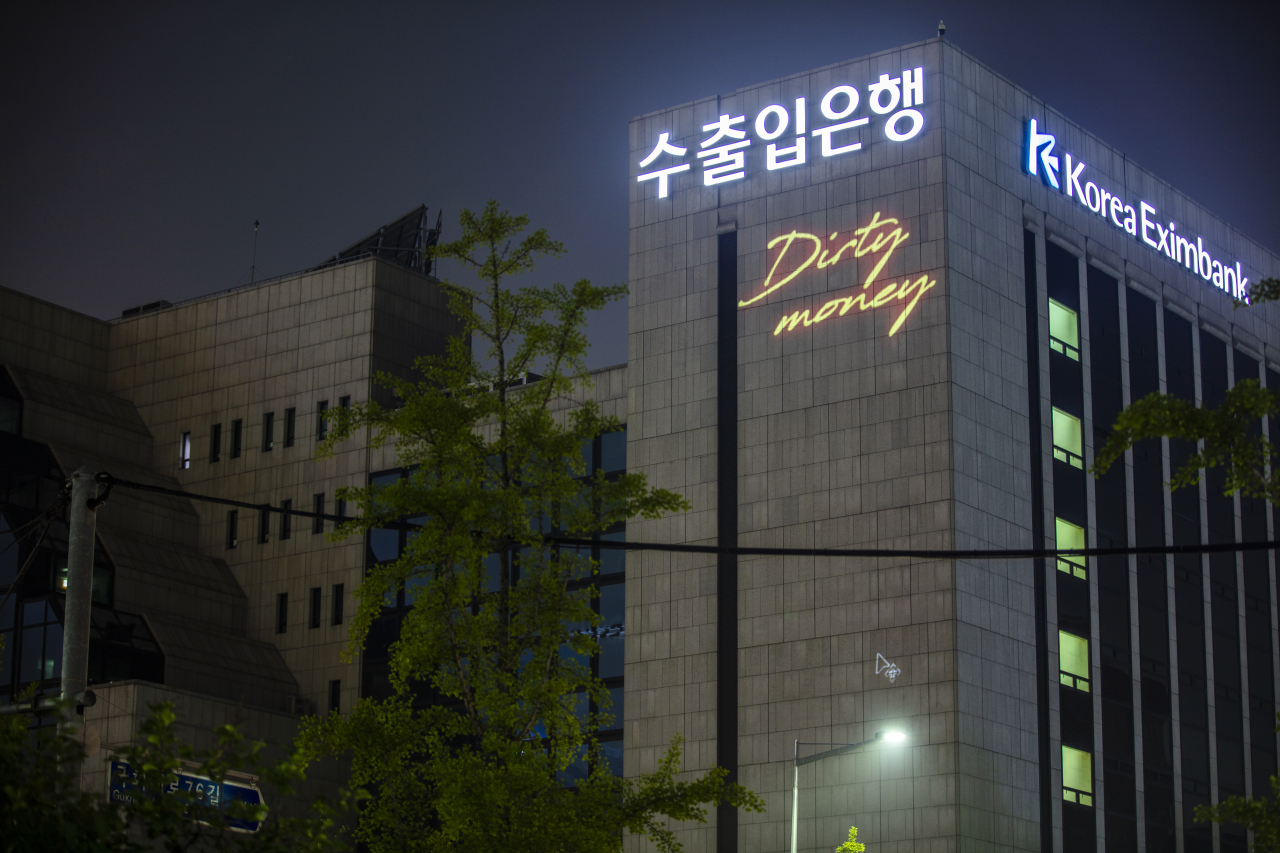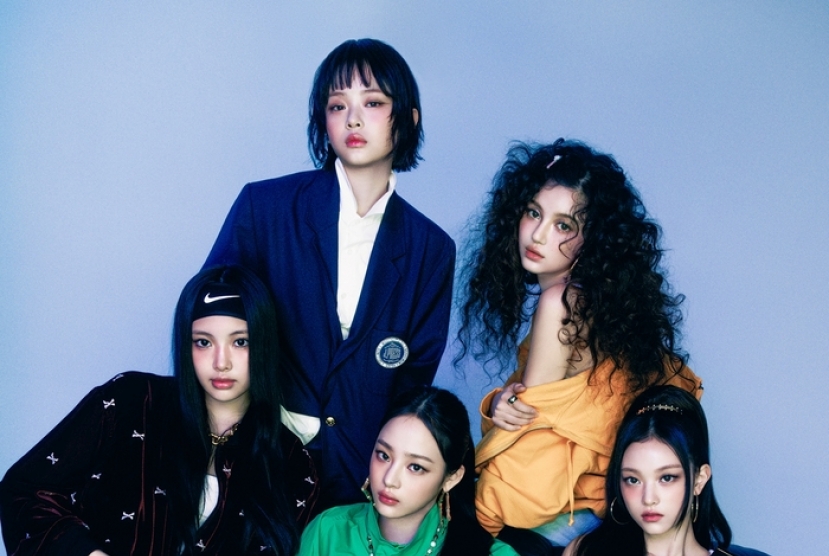South Korea’s official export credit agency Export-Import Bank of Korea is under pressure from international environmental activists to halt its financing of coal power plants, amid a growing global campaign to tackle climate change and air pollution.
On Sunday, Greenpeace Korea shone a laser light on the headquarters building of the Export-Import Bank of Korea in Seoul, displaying messages that read, “Stop investing in coal-fired plants” and “President Moon Jae-in, when are you going to halt financing coal plants?”
Greenpeace said Monday it had staged the surprise protest to call on the government and Eximbank to stop financing coal power.
“Such investments cause environmental pollution and damage to human health in the areas where coal plants are built. The coal industry is also not free from chronic corruption problems,” said Chang Ma-ri, a Greenpeace campaigner.
On Sunday, Greenpeace Korea shone a laser light on the headquarters building of the Export-Import Bank of Korea in Seoul, displaying messages that read, “Stop investing in coal-fired plants” and “President Moon Jae-in, when are you going to halt financing coal plants?”
Greenpeace said Monday it had staged the surprise protest to call on the government and Eximbank to stop financing coal power.
“Such investments cause environmental pollution and damage to human health in the areas where coal plants are built. The coal industry is also not free from chronic corruption problems,” said Chang Ma-ri, a Greenpeace campaigner.

The nongovernmental environmental organization pointed to the Cirebon 2 coal-fired power plant in Cirebon, a port city in Indonesia.
The project -- for which Eximbank is slated to finance around 600 billion won ($517 million) -- is also mired in a bribery scandal. Former Cirebon regent Sunjaya Purwadisastra is facing trial on bribery charges. He allegedly received 6.5 billion rupiah ($460,000) from Hyundai Engineering & Construction for granting land for the construction of a coal-fired power plant in the city.
If the bribe charges are proven, the construction of the plant may be canceled under the Organization for Economic Cooperation and Development convention on combating bribery of foreign public officials in international business transactions.
The Japan Bank for International Cooperation, which is also slated to invest in the plant, may withdraw its investment plan, according to reports. In May, the company said it might consider removing the project if the bribe case turns out to be true, according to Greenpeace.
“While construction firms, investors and regional officials pocket enormous profits, residents are worried their livelihood may be threatened and they should live with air pollution,” Chang said.
Korea is the world’s second-largest investor in the global coal-financing market following China. Over the last decade, the nation has invested a combined 11 trillion won in building coal plants in seven countries.
Eximbank has itself spent 6.1 trillion won, accounting for 53 percent of the total investments. It is followed by Korea Trade Insurance Corp. and the Korea Development Bank. Most recently, the export credit agency expressed its intent to invest in the Jawa-9 and Jawa-10 coal-fired power plants in Indonesia.
Eximbank said it is taking a cautious stance on coal projects by strictly abiding by the OECD sector understanding on export credits for coal-fired electricity generation as well as international environmental standards.
Boycotting coal finance has been part of the global movement to tackle climate change and air pollution. The fossil-free campaign led by international nonprofit organization 350.org aims to reduce atmospheric carbon dioxide to 350 parts per million from the current level of 400 ppm.
As of June, a total 1,070 global finance and investment institutions had declared they would not invest in coal, as part of the global fossil-free campaign. They include Deutsche Bank, the World Bank, ING Group, AXA, HSBC, Citibank and Standard Chartered.
In Korea, the Teachers’ Pension and Government Employees Pension System joined the campaign in October last year, as the first and only Korean financial institution.
By Shin Ji-hye (shinjh@heraldcorp.com)




![[Herald Interview] 'Amid aging population, Korea to invite more young professionals from overseas'](http://res.heraldm.com/phpwas/restmb_idxmake.php?idx=644&simg=/content/image/2024/04/24/20240424050844_0.jpg&u=20240424200058)












![[KH Explains] Korean shipbuilding stocks rally: Real growth or bubble?](http://res.heraldm.com/phpwas/restmb_idxmake.php?idx=652&simg=/content/image/2024/04/25/20240425050656_0.jpg&u=)

